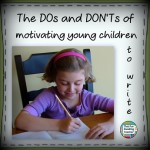I taught for a decade before I started my Reading Recovery training, beginning with kindergarten in a school where half of my students understood only Portuguese when they arrived. In those first ten years I moved between kindergarten, primary special education and grade one. My grade one students who struggled the most were lucky enough to have the Reading Recovery program in place, and I was astounded at the changes I saw in them in such a short time. Those teachers had some kind of magic and I was thrilled when I was able to take the position at my school. There was a mystery that surrounded what really happened in that little room.
Wait a minute – the kid learns nothing new and the teacher does everything for them?
I began my Reading Recovery training like my fellow trainees, enthusiastic, and in a hurry to get my students reading and writing! I was impatient with the ‘Roaming around the Known’ period: ‘Roaming’ being delicately consolidating (with ABSOLUTELY no teaching) around what the child already knows (the ‘known’), perhaps discovering more about what is known or stumbling upon areas of difficulty somehow missed in the testing process. It was a ten lessons, two week complete, no-stress, the-child-does-all-he’s-capable-of-and-you-do-everything-else period of (what felt like) non-structured, laziness. It drove us all nuts – at first.
But here’s what actually happened.
We had LOADS of fun. The kids, who at the beginning of grade one already knew they were ‘the worst readers in the class’ and had already been refusing to take risks and try anything new, gained confidence and trust in us, the process and themselves and started to try. They were excited to come to Reading Recovery every day, before we even started lessons.
What did we do?
- We read familiar books over, and over, and over again.
- We made our own story books, sharing the marker; the child writing the words s/he knew, the teacher writing the rest.
- We played games with the words and letters the child already knew. We painted (with water) on the walls of the school and the playground, in sand trays, and shaving cream.
- We practiced moving from left to right…and I could go on (and will in a future post)…
My point is, we learned that there is nothing wrong with EASY, especially when dealing with a child whose confidence needs a boost.
Most of the children I have worked with in recent years are these very children. For many of them, the little things are giant in their minds. Anticipation of a task can be more difficult to manage than the task itself. We need to start with success and build up one baby step at a time. You do remember Baby Steps, don’t you?
| [youtube http://www.youtube.com/watch?v=p3JPa2mvSQ4] |  |
And, of course, humor keeps us all going when the going gets tough!
Here are a few links to help anyone who is starting at the very beginning of the literacy journey this year. Best wishes to you!
 |
 |
 |
 |
 |
 |
PreEmergent Sight-Word-Stages Readers (two words per page, also available in bundles):
 |
 |
 |
 |
http://thatfunreadingteacher.com/
ThatFunReadingTeacher@gmail.com
Click the symbol above to access my TpT Store! 😉

